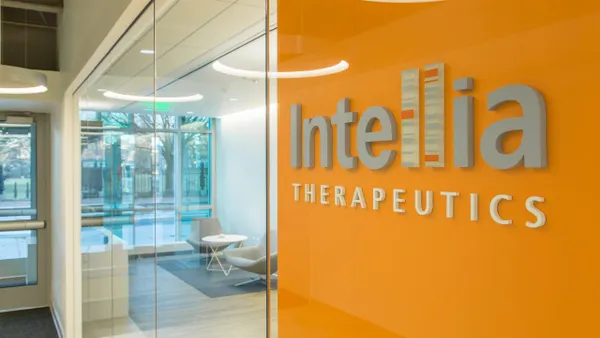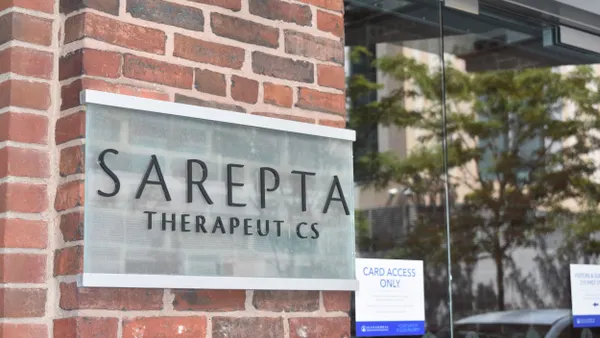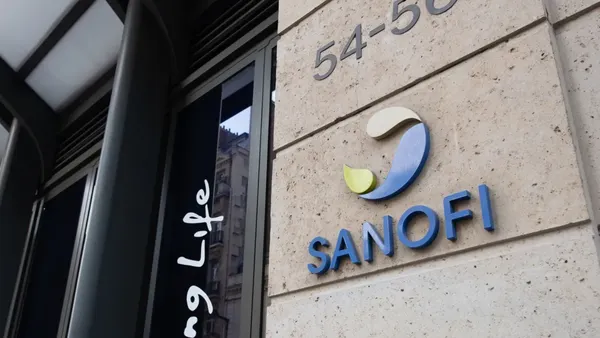Dive Brief:
- Apogee Therapeutics on Monday said an experimental antibody drug it’s developing significantly reduced signs and symptoms of atopic dermatitis, a common form of eczema, when compared to a placebo in a mid-stage trial.
- The study randomized 123 people with moderate-to-severe atopic dermatitis to receive either placebo or Apogee’s drug. Results showed the treatment reduced the severity of symptoms at week 16, meeting the trial’s primary and secondary endpoints.
- Analysts viewed the data as competitive to that of Sanofi and Regeneron’s Dupixent and Eli Lilly’s Ebgylss, which are both approved for atopic dermatitis in the U.S. Apogee’s drug could be dosed less frequently than either, however, potentially offering an advantage.
Dive Insight:
Atopic dermatitis is a chronic condition that causes dry, irritated and itchy skin. Anti-inflammatory treatments such as corticosteroids or monoclonal antibodies like Dupixent and Ebglyss are often used.
Apogee’s injection, dubbed APG777, has been closely watched by investors after early data revealed by the company last year hinted at the drug’s potential.
“APG777 has the potential to set a new standard of care by offering improved clinical responses with transformational quarterly or better maintenance dosing — benefiting patients, providers, and payers,” Apogee CEO Michael Henderson said in a statement, adding that the results “de-risks APG777’s path to approval.”
In the Phase 2 study, 123 adults with moderate-to-severe atopic dermatitis received either placebo or a 720 mg dose of APG777 at the beginning of the trial and at week 2. Patients in the drug arm then received a 360 mg dose at weeks 4 and 12. Patients who benefited could then receive maintenance dosing, data from which Apogee plans to use to evaluate three- and six-month dosing.
After 16 weeks, APG777 reduced disease severity by 71%, as measured by a commonly used scale, versus 34% among those on placebo.
Of the adults who received APG777, 67% achieved 75% skin clearance on that scale, compared to about 25% of those on placebo. In a note to clients Monday, Stifel analyst Alex Thompson that that finding was “meaningfully better” than Dupixent and Ebglyss, which recorded 48% to 52% and 52% to 59%, respectively.
“Ultimately, we think the totality of the data support APG777 as a highly-competitive, derisked drug in atopic dermatitis, and Type 2 allergic diseases more broadly — markets where there remains significant strategic interest,” Thompson wrote.
The drug had an acceptable safety profile, according to Apogee. The most common side effects reported were non-allergic conjunctivitis, upper respiratory tract infections and nasopharyngitis, although rates were low. The rare of discontinuations for side effects among APG777-treated patients was also low at 2.4%.
A second part of the Phase 2 study is still being conducted, with data expected by the middle of next year. Apogee is also testing another drug candidate versus Dupixent in a Phase 1b study.















